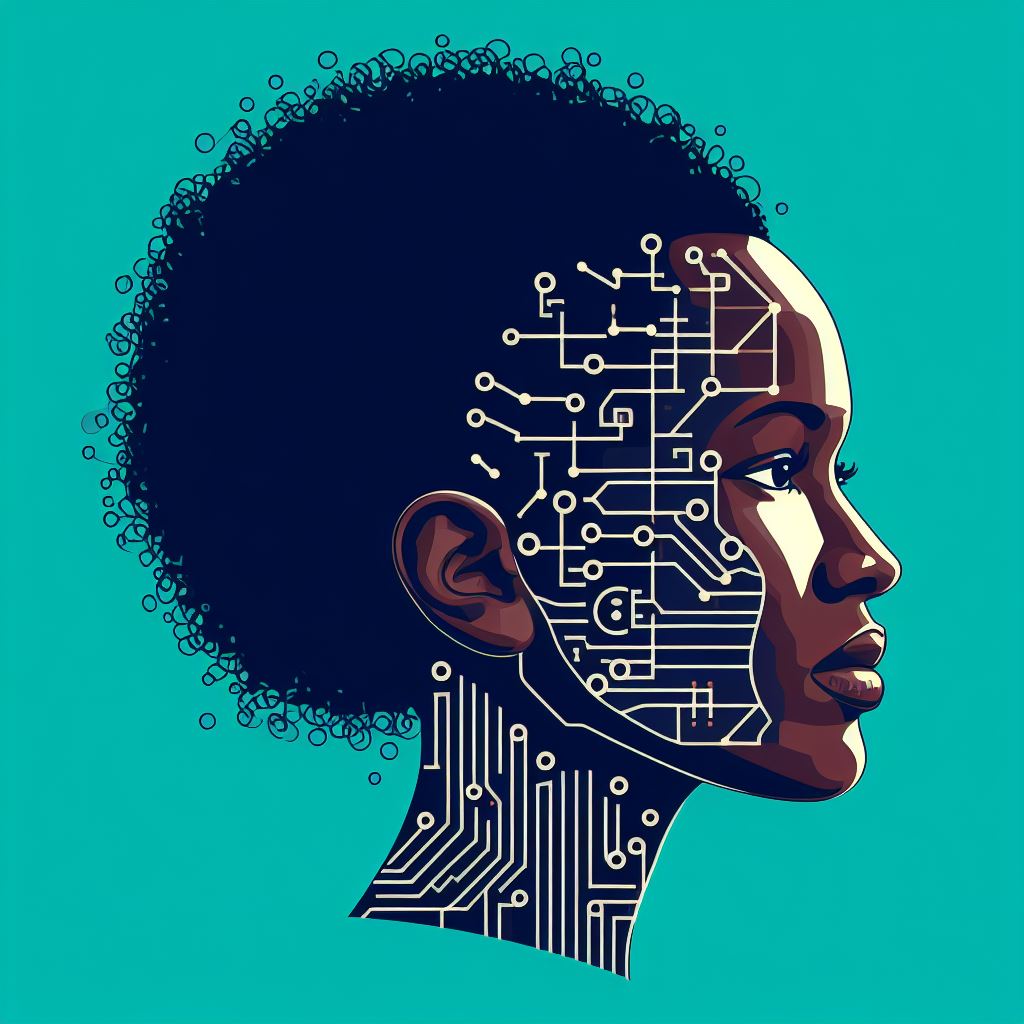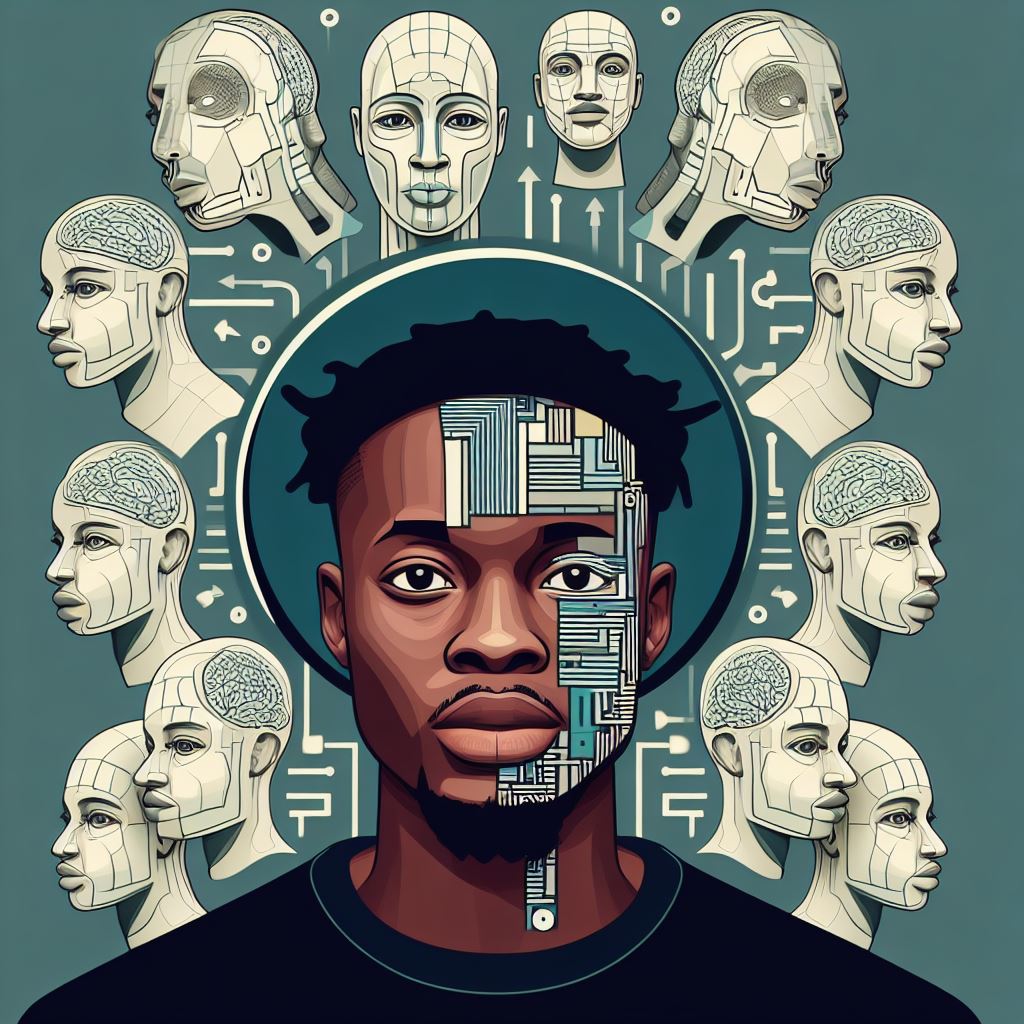Introduction
In today’s technology-driven world, coding and programming play a crucial role in various industries.
There is often confusion between the terms “coding” and “programming,” as they are used interchangeably.
The purpose of this blog post is to provide clarity and differentiate between coding and programming.
In our technology-driven world, coding and programming play pivotal roles, but the terms are often used interchangeably, causing confusion.
Importance of Coding and Programming:
- Innovation Catalysts: Both coding and programming are vital for driving technological innovation.
- Problem Solving: They empower individuals to solve complex problems through logical thinking and creativity.
- Automation: Automation of tasks, from simple to intricate, relies on proficient coding and programming skills.
- Web Development: Building websites necessitates coding skills, while programming shapes the website’s functionality.
- App Development: Coding crafts the visual elements, while programming defines the app’s functionality and behavior.
The Confusion Between Coding and Programming:
- Common Misconception: Many consider coding and programming synonymous, perpetuating confusion in tech discourse.
- Precision Matters: Coding is part of programming, but not all coding is programming. The distinction lies in scope and complexity.
Purpose of this Blog Post: Clarifying the Difference:
- Define Coding: Coding involves translating human-readable instructions into a machine-understandable language.
- Define Programming: Programming encompasses the entire process, including problem-solving, planning, testing, and coding.
In essence, coding is the translator, and programming is the entire language. This blog aims to unravel the intricacies, ensuring a clearer understanding of these fundamental elements shaping our digital landscape.
Definition of Coding
Coding refers to the act of writing commands or instructions in a specific programming language.
In coding, ideas are translated into a language that computers can understand.
Coding is the process of converting human-readable instructions into machine-executable code.
What is Coding?
Coding is the fundamental aspect of programming. It involves writing sets of instructions in a specific programming language to create programs, websites, mobile apps, and more.
Through coding, developers provide a series of step-by-step commands that computers can execute to perform a desired task.
Coding is like providing a recipe to a computer, telling it what to do and how to do it.
The Importance of Coding
In today’s digital world, coding has become increasingly important in various industries and sectors.
Unlock Your Unique Tech Path
Get expert tech consulting tailored just for you. Receive personalized advice and solutions within 1-3 business days.
Get StartedCoding enables us to build and create innovative solutions to complex problems.
Learning to code helps develop problem-solving skills, logical thinking, and attention to detail.
Coding also encourages creativity by allowing individuals to bring their ideas to life through digital means.
From managing databases to designing user interfaces and developing artificial intelligence, coding plays a crucial role.
Key Elements of Coding
1. Programming Languages
Coding involves using programming languages such as Python, JavaScript, Java, C++, and more.
Each programming language serves various purposes and has its own syntax and rules.
2. Syntax
Syntax refers to the set of rules that govern the structure and format of programming languages.
Proper syntax is crucial in coding, as a single error can lead to bugs or the program not functioning as intended.
3. Problem Solving
Coding requires breaking down complex problems into smaller, manageable parts.
Developers identify the best approach and use coding techniques to solve each component before combining them into a cohesive solution.
4. Debugging
Debugging is the process of identifying and fixing errors or bugs within the code.
Coders use debugging tools to trace and rectify issues in their programs to ensure they run smoothly.
In summary, coding is the process of writing instructions in a programming language to create computer programs.
It involves turning ideas and concepts into code that computers can comprehend and execute.
Unlock Premium Source Code for Your Projects!
Accelerate your development with our expert-crafted, reusable source code. Perfect for e-commerce, blogs, and portfolios. Study, modify, and build like a pro. Exclusive to Nigeria Coding Academy!
Get CodeCoding is an essential skill for anyone interested in technology and provides limitless opportunities for innovation and problem-solving.
By understanding the definition and significance of coding, individuals can embark on a journey to become proficient programmers.
Definition of Programming
Programming: A Broader Term
When discussing the difference between coding and programming, it is crucial to recognize that programming is a more extensive concept.
Here are some key points highlighting the broad scope of programming:
Problem-Solving
- Programming involves solving complex problems by breaking them down into smaller, manageable tasks.
- Programmers analyze problems, identify patterns, and develop algorithms to create efficient solutions.
- They use their logical and analytical skills to devise strategies for tackling different scenarios.
Algorithm Design
- Writing code is just one aspect of programming; designing algorithms is equally important.
- Programmers create step-by-step procedures or instructions that guide the computer in performing desired tasks.
- Algorithms help in organizing and optimizing the code to achieve efficient and effective solutions.
- They consider factors such as time complexity, space complexity, and algorithmic efficiency.
Writing Code
- Coding is an integral part of programming, where programmers write instructions using a specific programming language.
- They translate their logical thinking into a language that computers understand and execute.
- Code comprises a set of commands, variables, loops, conditions, and functions that perform specific actions.
- Programmers need to follow syntax rules and adhere to programming best practices to ensure code readability and maintainability.
The Importance of Programming
Programming plays a vital role in various industries and sectors, including software development, web development, artificial intelligence, and data science.
Here are some reasons highlighting the significance of programming:
Automation and Efficiency
- Programming allows automation of repetitive tasks, saving time and effort.
- By writing programs, tasks such as data processing, calculations, and report generation can be automated.
- This leads to increased efficiency and productivity in various domains.
Innovation and Creativity
- Programming empowers individuals to develop innovative solutions to complex problems.
- It provides a platform for creativity, where programmers can express their ideas through code.
- They can create new software applications, games, mobile apps, or websites with unique functionalities.
Problem Solving and Analytical Thinking
- Programming enhances problem-solving skills and fosters analytical thinking.
- Programmers learn to analyze problems, think logically, and break them down into smaller components.
- They develop the ability to devise efficient solutions by leveraging their analytical and critical thinking skills.
Career Opportunities
- Proficiency in programming opens up a wide range of career opportunities.
- Demand for skilled programmers is ever-growing, with job roles such as software developer, web developer, data analyst, and AI engineer.
- Industries such as finance, healthcare, education, and e-commerce heavily rely on programming expertise.
Coding and programming are related terms, but programming encompasses a broader spectrum that involves problem-solving, algorithm design, and code implementation.
It is essential to understand the comprehensive nature of programming to appreciate the skills and knowledge required to be a proficient programmer.
Programming opens up avenues for innovation, automation, and analytical thinking, making it a highly valuable skill in today’s technology-driven world.
So, whether you prefer coding or programming as a career, a solid understanding of programming concepts is vital to succeed and make a significant impact in the digital realm.
Read: Front-end Vs Back-end: What Nigerian Beginners Must Know
Scope of Coding
In the software development process, coding plays a crucial role as it involves writing specific lines of code to execute tasks and create programs or applications.
Coding is a subset of programming and focuses on implementing instructions in a specific programming language.
It is a hands-on activity that requires attention to detail and problem-solving skills.
The Role of Coding in Software Development
- Coding is the process of translating high-level algorithms and designs into a language that computers can understand and execute.
- It is an essential step in software development as it transforms concepts and ideas into functional programs.
- Coders, also known as programmers, are responsible for converting requirements and specifications into lines of code.
- They use programming languages such as Python, Java, C++, or JavaScript to write instructions that perform specific tasks.
- Coding enables the creation of complex software systems, including mobile apps, web applications, games, and more.
- It bridges the gap between human-readable logic and machine-executable commands.
Coding as a Subset of Programming
Coding is a subset of programming, which encompasses a broader set of activities and tasks. The distinction between coding and programming lies in their scope and level of abstraction.
- Coding involves translating algorithms and designs into lines of code, focusing on the nitty-gritty details of implementation.
- Programmers, on the other hand, engage in a range of activities, including problem analysis, system design, and software testing.
- Coders specialize in writing code, while programmers have a more comprehensive role in the software development lifecycle.
Hands-On Implementation in Coding
When it comes to coding, developers need to have a deep understanding of a specific programming language and its syntax. They have to implement instructions and logic using the language’s defined rules.
- Coders write code that tells computers what to do, step by step, to accomplish a particular task.
- They use variables, loops, conditional statements, and other programming constructs to create algorithms and solve problems.
- Coding requires attention to detail and the ability to think logically and analytically.
- It involves debugging and fixing issues in the code to ensure it runs correctly and efficiently.
- Coders must stay up to date with the latest advancements in programming languages and frameworks to write efficient and maintainable code.
Coding is an integral part of the software development process. It revolves around writing specific lines of code to implement instructions and create functional programs.
Coders play a vital role in translating designs and algorithms into a language computers can understand.
While coding is a subset of programming, it requires hands-on implementation and proficiency in a specific programming language.
As technology continues to advance, coding skills will remain in high demand.
Read: Meet Nigeria’s Coding Heroes: Interviews and Insights

Scope of Programming
Programming is a vast field that encompasses many different aspects and stages. It involves much more than just coding alone.
In this blog section, we will explore the broader scope of programming, highlighting the various stages involved and the skills required.
One of the key aspects of programming is planning. Before any code is written, a programmer must carefully plan out the structure and functionality of the program.
This includes defining the problem to be solved and determining the requirements and constraints.
Designing is another crucial stage in programming. During this phase, the programmer creates a blueprint or a model of the program.
It involves designing the user interface, defining the data structures and algorithms to be used, and mapping out the overall architecture of the program.
Once the planning and designing stages are complete, the actual coding begins. Coding is the process of translating the program’s logic and design into a specific programming language.
It involves writing lines of code that instruct the computer on how to execute a particular task or solve a specific problem.
But coding is only one part of the programming process. Testing is a vital stage that ensures the program functions as intended.
Programmers extensively test their code to identify any errors or bugs and ensure that the program behaves correctly in different scenarios.
This stage often involves running the program with various inputs and analyzing the output to verify its correctness.
Debugging is closely tied to testing. When bugs or errors are found during the testing phase, programmers need to identify and fix them.
Debugging requires careful analysis of the code and understanding the program’s flow to locate and correct any issues that arise.
To be proficient in programming, one must have a deep understanding of algorithms, data structures, and problem-solving techniques.
These concepts form the foundation of programming and enable programmers to devise efficient solutions to complex problems.
By utilizing appropriate algorithms and data structures, programmers can optimize their code, improve performance, and enhance the overall user experience.
Read: Using Python for Web Development in Nigeria: A How-To Guide
Key Differences
When it comes to the world of technology, coding and programming are often used interchangeably.
However, there are significant differences between the two terms that are important to understand.
In this blog section, we will delve into these primary differences and shed light on the distinction between coding and programming.
Coding vs. Programming: Understanding the Basics
At its core, coding is a subset of programming. Coding refers to the act of writing instructions in a specific programming language that a computer can understand.
It involves the creation of lines of code that tell a computer how to perform specific tasks. On the other hand, programming is a broader term that encompasses a wider range of activities.
The Scope of Coding
Coding primarily focuses on the task of writing code. It involves the translation of human instructions into a language that a computer can comprehend.
A coder’s main objective is to write clear, concise, and error-free code that performs the desired functions.
Coders work with programming languages such as Python, Java, or JavaScript to create algorithms and solve specific problems.
There are different types of coders who specialize in specific areas, such as front-end coders who focus on creating user interfaces or backend coders who work on the functionality of an application or website.
Regardless of the specialization, coders play a crucial role in software development.
The Process of Programming
Programming, on the other hand, involves the entire process of developing software. It encompasses various stages, including planning, designing, coding, testing, and debugging.
Programmers are involved in the big picture of software development and work to create applications, software systems, or websites.
Programmers start by analyzing the requirements of a project and then create a plan or blueprint for the software.
They design the architecture, select the appropriate technologies or tools, and create algorithms to solve complex problems.
Once the planning and designing stages are complete, coding comes into play, where programmers write the necessary code to bring the software to life.
After the coding phase, programmers extensively test the software to identify and fix any bugs or errors.
They ensure the software performs as intended and meets the specified requirements. Programmers also implement necessary updates and improvements throughout the software’s lifecycle.
The Importance of Understanding the Difference
While coding is an essential part of programming, it is crucial to recognize that programming involves more than just writing code.
Understanding the difference between coding and programming allows individuals to choose the right career path, acquire the necessary skills, and communicate accurately within the tech community.
Moreover, comprehending this distinction helps organizations in recruiting the right talent for their projects.
Depending on the nature and scope of a project, they can identify whether they need skilled coders or programmers who can handle the entire software development process.
Coding is a part of programming, but coding alone does not define the entire scope of programming.
Coding primarily focuses on writing code, while programming encompasses all aspects of software development.
Whether you aspire to be a coder or a programmer, understanding these key differences is essential for career growth in the tech industry.
Read: How to Overcome Coding Obstacles: Tips for Kids
Skills and Knowledge
Coding
- Coding requires proficiency in programming languages and syntax.
- Attention to detail and logical thinking are essential skills in coding.
- Coders need to have an understanding of problem-solving strategies.
- Coding requires the ability to break down complex problems into smaller, manageable tasks.
- Strong mathematical skills are necessary for coding, especially in areas like algorithms or data analysis.
- Coders need to have a good grasp of debugging techniques to identify and fix errors in their code.
- Continuous learning and adaptability are crucial for coders as technologies and programming languages evolve over time.
- Coders should be able to work well in a team and collaborate with others on projects.
- Good communication skills are essential for coders to effectively communicate their ideas and solutions.
- Having a creative mindset can help coders come up with innovative solutions to complex problems.
Programming
- Programming requires strong problem-solving skills and critical thinking abilities.
- Understanding and implementing algorithms is a fundamental skill for programmers.
- Programmers need to be able to plan, analyze, and organize data effectively.
- Attention to detail is crucial in programming to avoid errors and bugs.
- Programmers need to think logically and systematically to ensure their code functions correctly.
- Proficiency in multiple programming languages is beneficial for programmers to work on various projects.
- Being able to collaborate and communicate effectively within a team is vital for programmers.
- Programmers should have good documentation skills to create clear and understandable code.
- Being able to adapt to changing requirements and continuously learn new technologies is important for programmers.
- Strong organizational skills help programmers manage and maintain their code efficiently.
Conclusion
To wrap it up, coding and programming may seem interchangeable, but there are key distinctions between the two.
Coding is the process of writing instructions in a specific programming language to create a program. It focuses on the implementation aspect and entails translating concepts into executable code.
On the other hand, programming encompasses a broader scope and includes the entire process of designing, planning, and coding a software solution.
It involves problem-solving, algorithm development, and logical thinking.
Understanding these differences is crucial for individuals pursuing careers in technology. By recognizing the nuances, they can make informed decisions and align their goals and aspirations accordingly.
Moreover, grasping the disparities between coding and programming allows individuals to better communicate and collaborate within technology teams.
It facilitates effective coordination between developers, designers, and project managers.
To truly excel in the tech industry, it is essential to delve deeper into both coding and programming.
By enhancing their skills and knowledge in these areas, individuals can unlock new opportunities and stay ahead in this rapidly evolving field.
Continuing education, attending workshops, and participating in coding challenges are excellent ways to further expand one’s abilities.
Investing time and effort in learning various programming languages can also broaden horizons and offer a competitive advantage.
Coding and programming are not synonymous. Differentiating between the two offers a clear understanding of their respective roles and significance.
By immersing themselves in both domains, tech enthusiasts can thrive and succeed in the dynamic and ever-changing world of technology.




